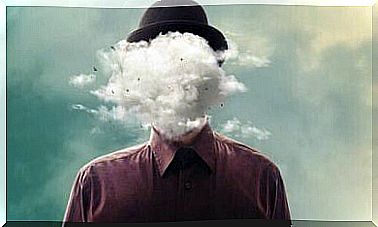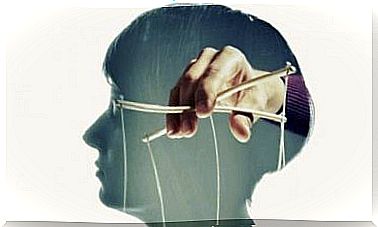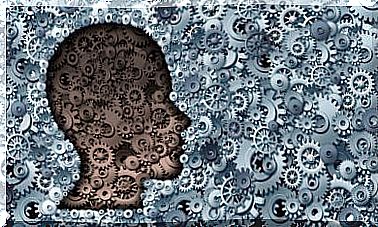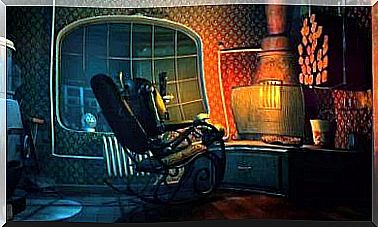How Can You Deal With Despair And Depression?

There are times when we feel desperate. That’s because we don’t understand what’s going on around us. We are angry with ourselves and take it out on the people close to us. The truth is that behind these psychological realities we see the other side of depression. In this article we will discuss how to deal with despair.
Despair is the echo that emerges from the void. Philosophers like Søren Kierkegaard have talked a lot about it. He described it as a lack of enthusiasm, meaning and challenge. On the other hand, Jean-Paul Sartre said that it is the frustrating inability to move forward and also a cowardly negativism that society allows to grow in us.
From a psychological standpoint, no one has dug as deep into human despair as Viktor Frankl. He was the father of logotherapy and a survivor of several Nazi concentration camps. Frankl defined this concept in terms of two very fundamental ideas: suffering and the loss of meaning.
These experiences are without a doubt some of the most depressing for a human being. Yet it is still possible to deal with despair and come out stronger on the other side. We all have the ability to confront life with renewed vigor and resources.

Deep despair can cause depression
If every person on this planet lacked purpose and meaning, it would lead to complete despair. We often describe this situation as a mixture of sadness and lack of hope. Yet we must realize that it is much deeper than that.
After all, it is a feeling of emptiness and a state of mind where a person does not stop asking questions to which he has no answers. Here are some examples of these questions:
- What is the meaning of this life?
- What is my place in this world?
- In this situation where nothing makes sense, what can I do?
These kinds of questions only feed the cycle of despair. They take the person further and further into a psychological darkness.
Despair, fueled by fear
Studies have been conducted on this subject such as the study of Dr. Martin Bürgy from the University of Stuttgart in Germany. They show that despair is a subject that has been neglected in the world of psychology until only recently.
Whatever the reason, apparently we’ve always left it to the world of philosophy. After all, philosophy is looking for answers to questions that have to do with the more existential problems in life.
- Now, however, cognitive psychology is very clear about the clinical relevance of this condition. Despair can occur at any time in our lives.
- We can feel it in moments when everything seems to be disappointing and we feel like we’re getting nowhere. It can lead to very serious problems in our lives.
- This happens when we fall into circles of obsessive thoughts filled with negativity and helplessness. These negative thoughts then mingle with a complex network of emotions such as sadness, fear, anger and frustration.
It is very common for despair to occur as a result of fear. However, if this situation persists over time, the person in question will almost inevitably slip into a major depressive disorder.

Tackle despair by confronting your problems
If left untreated, despair can eventually create all kinds of extreme ideas in a person’s mind. Thoughts of suicide can creep into our minds. They are the result of that total loss of meaning and hope. In this dangerous situation, it is crucial that the person seeks psychological help.
Despair is something that is almost always present in severe cases of depression and even bipolar disorder. These are very fragile situations. Often they require pharmacological treatment along with therapy. However, we said it at the beginning, we can overcome these situations with specialized help and commitment.
Dealing with despair by finding a way out for your anger
Anger is powerful, justified and transformative if we channel it in the right way. In people who find no sense in anything, despair is expressed through anger. They are angry at the world and at themselves.
It may sound surprising but this is actually something good. In fact, apathy, immobility, feeling nothing, feeling emptiness and in fact the feeling that nothing matters are the most dangerous.
However, if we try to use anger to our advantage and create changes, things will gradually start to improve. We will find a new balance.
We just need to direct the negative energy and turn it into something positive. That will melt away the problems we face.

Start again by looking yourself in the eye
Some describe despair as the moment when our darkest side holds us captive. Our darkest side is the side that wants us to feel weak and lost.
Carl Jung pointed out that change is the goal of psychological therapy. According to him, it is mainly intended to reach that point in our lives where we find the true meaning for our existence.
Despair forces us to talk to ourselves and confront our darkest side. Therefore, it is our duty to accept and defeat the “dark side” to which Jung refers. Only then will we be able to reach that radiant and stronger side where we can once again find hope and security.









